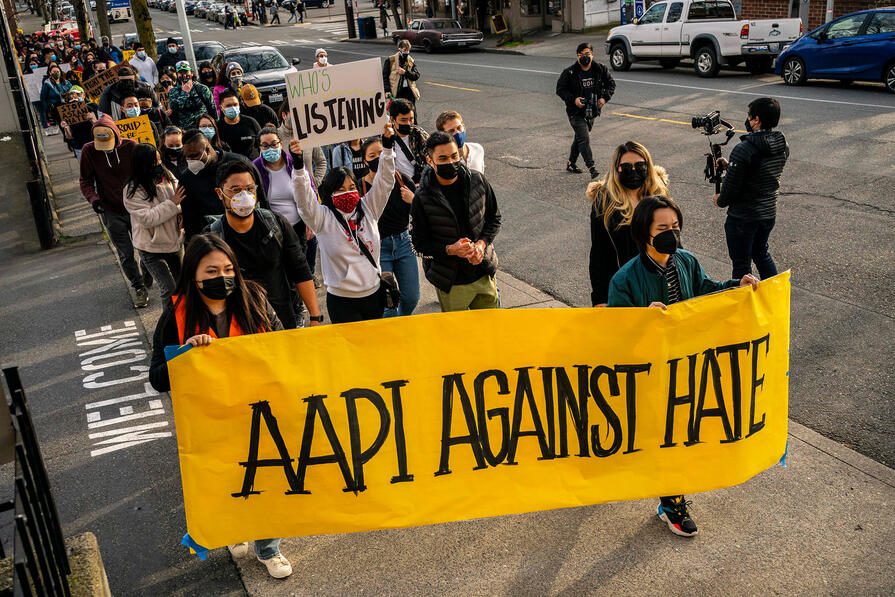Originally published March 2021, last updated February 2022
We stand with those fighting against bias and the discrimination and abuse it generates. Below are resources that may be useful to those who have been victims of hateful language or worse as well as resources to help teach about these problems and mobilize against them.
Resources
- Anti-Asian Violence Resource Card
- Bystander Intervention Training
- California Attorney General Hate Crimes Info (English | Chinese)
- U.S. Department of Justice, Los Angeles, Hate Crimes reporting
- Los Angeles Times covers anti-Asian racism
- U.S. Department of Justice Hate Crimes
USCI Information
- Newsletter and infographics on Anti-Asian Hate Crimes, March 11, 2021 & February 10, 2022
- Panel discussion on the biases and discrimination against Asians and Asian Americans
- Looking at the U.S. Justice Department's China Initiative
- Panel discussion on the growth of the Asian American community
Messages, Remarks and Hearings
- Joint Statement on Anti-Asian Hate and Violence, March 30, 2021 (Issued by seven USC departments and centers)
- President Biden and Vice President Harris' remarks about the ongoing attacks, March 19, 2021
- Written message from USC President Carol Folt, March 19, 2021
- Letter from USC Annenberg Dean Willow Bay, March 15, 2021
NCTA Statement On Anti-Asian Racism And Violence, March 18, 2021
Other Organizations
- Asian Mental Health Collective
- Stop AAPI Hate
- Stand Against Hatred
- Asian Americans Advancing Justice - Los Angeles
- National Asian American Pacific Islander Mental Health Association
- The AAPI Community Fund




